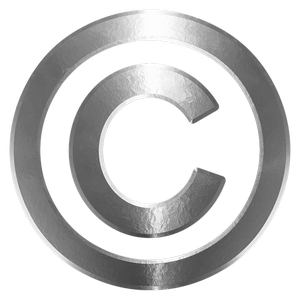
Websites, social media and the Internet feed psuedonymity and anonymity while claiming "copyright" to their content. It is simple enough to give yourself a fake name. Even under a fake name you can own the copyright to content. Your Twitter name can be a meme, mantra or brand. Your eBay name can reflect the product you sell. No one needs to know your real identity. Even a website which has photos, videos and content can be fake, fake, fake. The more technical term is that the website owner could have "psuedonymity and/or anonymity".
To understand the language we will review a few definitions. Once these definitions are better understood, you can determine if your marketing strategy will be about standing behind a curtain and acting like the wizard in the Wizard of OZ or standing tall with pride and transparency to build a reputation which gains trust and forms relationships.
Pseudonymity:
Pseudonymity is a word derived from pseudonym, meaning 'false name', and anonymity, meaning unknown or undeclared source, describing a state of disguised identity. The pseudonym identifies a holder, that is, one or more human beings who possess but do not disclose their true names (that is, legal identities). Most pseudonym holders use pseudonyms because they wish to remain anonymous, but anonymity is difficult to achieve, and is often fraught with legal issues. True anonymity requires unlinkability, such that an attacker's examination of the pseudonym holder's message provides no new information about the holder's true name.
In other words, the cute blonde who is out at the local tavern is approached by an obnoxious, arrogant "man". He says: "What's your name, baby?" and she responds: "Gertrude" which is how she wants to be known by him. This of course is rampant on the Internet. Everyone is somebody else.
Anonymity:
Anonymity is derived from the Greek word ἀνωνυμία, anonymia, meaning "without a name" or "namelessness". In colloquial use, anonymity typically refers to the state of an individual's personal identity, or personally identifiable information, being publicly unknown.
In other words, you sign onto Facebook with Pseudonymity hoping that your identity will never be found out. You might select a name like "Benjamin Franklin" which sends a message that you don't want to be known but you are pretty high on yourself. By maintaining anonymity, you are able to insult people, make mistakes with no conesquence, sell things which have no value and rag on others because they are different.
Anonymity seems safe but has little value since trust and reputation can't be had. There are fools who will spend their money when you call yourself Mr. X but do you want to base your business on fools?
Creative Commons (CC):
Creative Commons (CC) is a non-profit organization headquartered in Mountain View, California, United States devoted to expanding the range of creative works available for others to build upon legally and to share. The organization has released several copyright-licenses known as Creative Commons licenses free of charge to the public. These licenses allow creators to communicate which rights they reserve, and which rights they waive for the benefit of recipients or other creators. An easy to understand one-page explanation of rights, with associated visual symbols, explains the specifics of each Creative Commons license. This simplicity distinguishes Creative Commons from an all-rights reserved copyright. Creative Commons was invented to create a more flexible copyright model, replacing "all rights reserved" with "some rights reserved". Wikipedia is one of the notable web-based projects using one of its licenses.
In other words, don't be afraid of copyright rules. The game has changed since every business owner is now in the publishing business.
Creative Commons licenses give you the ability to dictate how others may exercise your copyright rights. For instance, you can give the right to copy your work, make derivative works or adaptations of your work, to distribute your work and/or make money from your work to others.
You don't have to register or sign up. There is nothing to join. You simply use the tools Creative Commons provides and attach it to your work.
Can you have Pseudonymity and still use Creative Commons?
The answer is yes.
Where does one go to License their work under Creative Commons?
Here is the link to where you can license your work.
Guerrilla marketing success is based on relationships, trust, reputation and service. If you decide that your marketing strategy includes pseudonymity with the hope of staying anonymous to avoid the risks and yet still maintain control of your work, you will want to review this information more in depth.